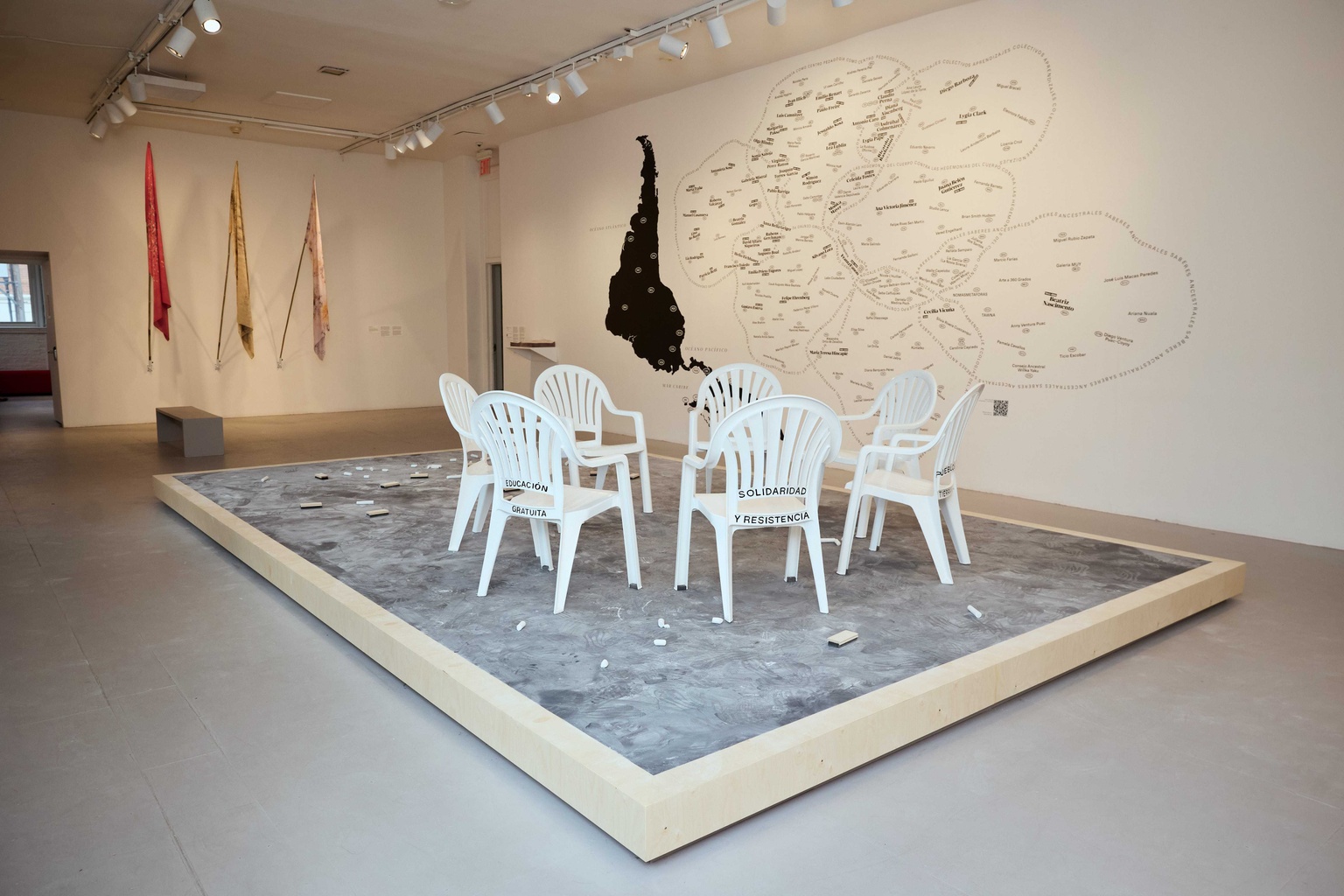This exhibit in the Brooklyn Museum features eleven portraits that revolve around Hou’s Queer Asian Cowboy identity using North American and Asian iconography. The exhibit’s title is taken from a poem Oscar wrote “poem pictures”, a hybrid of Chinese and English script with American graffiti, to explore the Asian American experience. Even-One of the pieces “Ends of Empire” features a poem hidden in the red stripes of the US flag that comments on imperialism.
Oscar sneaks in US history by the way of the pieces’ subjects and titles. His “Cooliism” series employs the slur which was against indentured servants of Chinese or Indian decent in the 18th century. Yi Hou uses the word to point out the Asian American violence happening today and reclaiming it for his work by depicting Queer Asian Cowboys . Another work that looks back at Asian American history is “Gold Mountain Cruiser” which depicts a portrait of Yi Hou with a white tank top, jeans, a construction hat, and a pickaxe referring to the history of Asian Americans and the Gold Rush. During this time, many immigrated from China to California hoping to live a better life and, instead, ended up in mining camps. This show uses “poem pictures” to show both US history and queer representation of Asians.




No comments:
Post a Comment
Note: Only a member of this blog may post a comment.